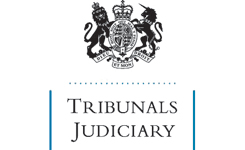|
Notes:
|
Reported as [2010] AACR 18
Residence and presence conditions – right to reside – dependent family member – whether dependency in country of origin required
The claimant, a Portuguese national, came to the United Kingdom in 2004 to join her son. She initially received jobseeker’s allowance, but on reaching the age of 60, claimed state pension credit. That claim was refused on the ground that she was deemed not to be “in Great Britain” by virtue of regulation 2 of the State Pension Credit Regulations 2002, as she did not have a right to reside in the United Kingdom. The claimant appealed and a tribunal upheld her appeal, finding that she should have been treated as “in Great Britain” under regulation 2(4) as the dependent family member of an EU national who had retained worker status under the terms of the Citizens’ Directive (2004/38/EC). The Secretary of State’s appeal to the Commissioner was allowed. On the claimant’s appeal to the Court of Appeal it was common ground that the claimant was a “family member” as defined by Article 2(2)(d) of the Directive. The issue was whether she was “dependent”. The Secretary of State argued that it was necessary for dependency to have existed at the time of entry to the United Kingdom, citing Jia v Migrationsverket (Case C-1/05) [2007] QB 545, followed in KG (Sri Lanka) and AK (Sri Lanka) v Secretary of State for the Home Department [2008] EWCA Civ 13; [2008] Imm AR 343 and Bigia and others v Entry Clearance Officer [2009] EWCA Civ 79, and referring to Guidance from the Commission to the European Parliament.
Held, allowing the appeal, that:
1. the Secretary of State’s interpretation of Articles 2(1) and 3(1) could realistically result in a person deciding not to move to another Member State to work or, having moved, to be encouraged to return to his State of origin, and so would not be consistent with the purpose of the Directive, or give effect to it (Minister voor Vereemdelingenzaken en Integratie v RNG Eind (Case C-291/05) [2007] ECR 1-10719 and Metock and Others v Minister for Justice, Equality and Law Reform (Case C-127/08) [2009] QB 318; [2008] ECR 1-06241 followed) (paragraphs 58 to 60);
2. when in Jia the court referred to the need for material support having to exist in the State of origin, it did so on the basis of what was said in Article 4(3)(e) of Directive 68/360, but Article 8(5)(d) of the Citizens’ Directive says nothing to suggest that documentary evidence of an Article 2(2)(d) dependency need emanate from the State of origin, in specific contrast to “other family member cases” under Article 3(2)(a), where under Article 8(5)(e) the relevant authority of the country of origin is referred to, and so the basis of the decision in Jia, insofar as it concerns family members, falls away in a case involving the Citizens’ Directive (paragraph 63);
3. Article 2(2), by contrast with Article 3(2)(a), does not specify when the dependency has to have arisen nor does it require that the relative must be dependent in the country of origin and so Article 2(2)(d), together with Article 8(5)(d), suggests that dependency in the State of origin need not be proved for family members. Such an interpretation reflects the policy of the Directive to strengthen and simplify the realisation of realistic free movement rights of Union citizens compatibly with their family rights (paragraph 67);
4. it followed that the proof of dependence by Mrs Pedro on her son in the United Kingdom, accepted by the appeal tribunal, would suffice under Article 2(2)(d) and that the guidance promulgated by the European Commission was incorrect, at least insofar as it concerned facts such as the present (paragraphs 69 to 72).
|
